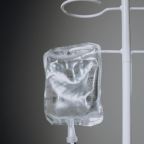
One in three of us drinking too much
A new study released yesterday (16 November) reveals that one in three adults in the South West are drinking too much alcohol, consuming it at levels that pose an increasing or higher risk of damaging their health.
But 83% of those drinking above the Government’s recommended guidelines underestimate their drinking, seeing themselves as ‘moderate’ or ‘light’ drinkers and 69% are not concerned about how much they drink.
They also do not understand the full impact that drinking too much could have on their health. Whilst the vast majority of those at risk understand the connection between alcohol and liver disease (86%) or weight gain (84%), just one in five (21%) realise it is linked to an increased risk of breast cancer, one in four (23%) associate it with dementia and half (53%) with a stroke.
The study was commissioned to coincide with Alcohol Awareness Week by Public Health Action, a new organisation tasked with reducing alcohol and tobacco harm in the South West.
Previously known as Smokefree South West, the organisation has led on a number of high profile programmes including smokefree Millennium Square in Bristol, the first outdoor open space in the UK to have a voluntary smoking code.
The study involved a survey of 500 adults together with six focus groups run in locations across the region, where issues relating to drinking alcohol were discussed. The aim was to find out more about the drinking habits and attitudes to alcohol of people in the South West, in order to understand the scale and nature of the issues and decide how to tackle them.
Kate Knight, speaking on behalf of the new behaviour change programme, explained: “Our study suggests that around 1.1 million adults in the South West may be drinking too much alcohol but many simply do not recognise the health risks they are taking. For instance, some people we spoke to were shocked to discover the link between alcohol and breast cancer or dementia and they wanted to understand more about the harm it could potentially do to their health.
“Many people think they are only drinking too much if they get out of control, rely on alcohol to get through the day or have bad hangovers and are simply unaware of the long-term harm their drinking may be doing to their health.”
Despite a commonly held belief that risky drinking is primarily a problem associated with younger people, the study revealed that in the South West, this type of alcohol consumption is evenly spread across all ages. Over half (54%) of ‘at risk’ drinkers tend to consume alcohol on most days of the week, with over a quarter drinking almost every day (27%), however only 14% of ‘at risk’ drinkers believe they regularly drink too much.
Looking at the overall findings for people across the South West, the study shows that managers and professionals are more likely than routine or manual workers to drink seven or more units on a typical day they are drinking - with 17% of managers and professionals but just 8% of routine or manual workers doing so.
Managers and professionals are also more likely to drink six or more times a week compared to routine or manual workers, with 15% of managers and professionals and 7% of routine or manual workers falling into this category. Meanwhile, people in professional and managerial occupations are less likely to be teetotal, with just 5% claiming they don’t drink at all, compared to 16% of routine and manual workers.
The figures also showed that parents are more likely than those without children to drink 10 or more units on a typical day when drinking – 16% of parents agreed with this statement compared to 8% of those without children.
According to the findings, men in the South West binge drink more frequently than women, with 19% bingeing at least weekly and 4% practically every day, whereas 10% of women binge at least once a week. Women are more likely than men to drink alcohol to give them confidence, with 23% of women compared to 14% of men giving this reason, while men are more likely than women to drink to relieve boredom, with 19% of men but just 5% of women doing so.
Kate Knight added: "This new evidence will dispel the popular myth that excessive drinking is all about alcoholics and young binge drinkers. In fact, our study indicates that parents are more likely than those without children to consume ten or more units when they drink – which is beyond the threshold for binge drinking. It’s also clear that people across all ages and from all walks of life are prone to drinking too much leaving them at risk of long-term damage to their health.”
Home is by far the most common place for drinking, with 60% of all drinkers claiming this is where they most often consume alcohol, compared to only 23% in bars, pubs or clubs and 8% at parties or social events.
Most people who drink do so because they like the taste (72%), to relax (66%) or to socialise (62%) with far fewer drinking for negative reasons such as to forget worries (20%), boost confidence (19%) or to get drunk, which only 16% claim to do.
Jackie Ballard, chief executive of Alcohol Concern, said: “This study is further evidence that large numbers of people drinking at a risky level don’t realise how much they’re drinking, and don’t know about the risks associated with alcohol.
“Alcohol is directly linked to over 60 medical conditions and continues to be the leading risk factor for deaths among men and women aged between 15 and 49 years in the UK.
“Alcohol is heavily advertised, widely accessible and available at cheap prices, and because of this it can be really easy for the amount people are drinking to creep up, without them realising that their alcohol intake is at a dangerous level which is harming their health. This is why we run the Dry January campaign, giving people the perfect opportunity to have a break from alcohol so they can reassess how much they’re drinking, and feel the benefits of being booze-free for a month.”
Alcohol control experts from across the region will be meeting to hear about the results of the study and discuss the best ways to reduce consumption at an event in Taunton on Wednesday 18th November.











